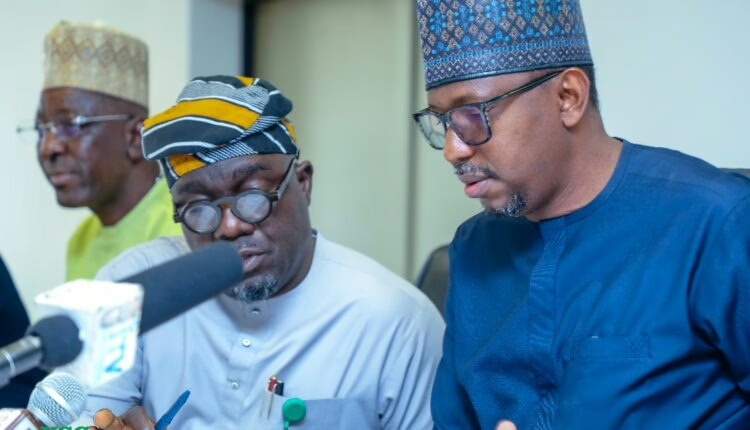From Noah Ebije, Kaduna
The Kaduna State Government has said it is committed to financing family planning to achieve the Federal Government’s 27 percent modern contraceptive prevalence rate (MCPR) among women of reproductive age by 2024.
The Permanent Secretary, Ministry of Health, Kaduna State, Dr Aisha Sadiq, stated at the weekend in Kaduna during a Project Mid-Dessemination meeting of the Society for Family Health’s Adolescent 360 Amplify Project (A360) in partnership with the Ministry and Primary Health Care Board tagged ‘ Repositioning Towards Sustainable and Scalable Impact, Empowering Adolescents for a Healthier future
A360 is a four-year project funded by the Bill & Belinda Gates Foundation and Children Investment Fund, led and implemented by Population Services International and the Society for Family Health in Nigeria (SFH).
According to Dr Sadiq, the current phase of the A360 Amplify programme has placed a strong emphasis on Human-Centred Design (HCD) and integration into Government health and development systems.
“I am happy with the programme and how it targets married adolescents in the community by improving the knowledge base and empowering them to aim for higher status in life, it is evident that the objectives with these girls, where they educate them on sexual reproductive health, communication skills, financial risk management, menstrual hygiene, and also train them on manufacturing products, which I have patronised them myself.
“The project has helped changed the behaviour of these married adolescent girls and it has reduced the negative implications of maternal mortality and child mortality. The Kaduna State government has already put modalities to sustain and improve the programme”. She added.
The Deputy Project Director (DPD) A360 Amplify, Rakiya Idris disclosed that the project tagged ‘Matasa Matan Arewa aims at improving the sexual health reproductive education of married adolescent girls aged 15-19 years in the North, explaining that the concept was first conceived in 2016 in the South-South tagged “Naija girls” and because of the peculiarity of the North, the project was tagged Matasa Matan Arewa.
“One unique thing about the project was the use of the systemic methodology called human-centered design (HCD) in which the adolescent married girls, are involved in co-designing of the program strategies and activities to reach the girls for better implementation”. She said.
She urged the Kaduna State government to domesticate the contingency project so that they can take appropriate actions to the challenges affecting these groups in the community by brainstorming on innovative approaches to sustain the program.
She emphasised that the importance of their work extends far beyond the lifespan of A360 by institutionalising the program strategies.
A-360 Amplify project State Manager, Dr Tanimu Salisu, noted that the project has helped in strengthening human capacity for health through training 250 providers on C4C and Youth-Friendly Health Services (YFHS) in the state.
She added that 439 were mobilised and trained, 539 MIPCA and about 1206 community and religious leaders trained to provide an enabling environment for these services.
He said the combined efforts resulted in over 420,000 girls being reached with Family Planning counselling and 370 girls taking up modern contraceptives for the first time.
“Matasa Matan Arewa continue to improve the human capital development of adolescent girls in Kaduna, as the program has over 2000 graduates from the economic empowerment program who are currently running business and catering for their families.
“We are hopeful that the state will take ownership and improve on the project to ensure that the young married girls become more informed and get access to free services for their sexual health,” Tanimu added.
Some of the participants expressed satisfaction over the dissemination meeting for the achievements made over the project and commitment towards sustaining and improving the program for the benefit of all young adolescent girls in the state.











